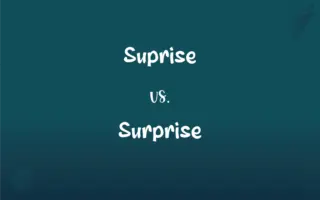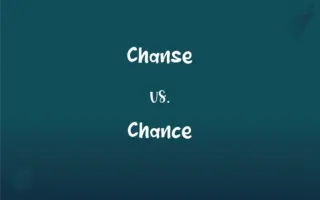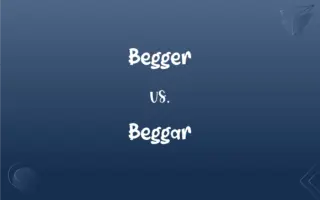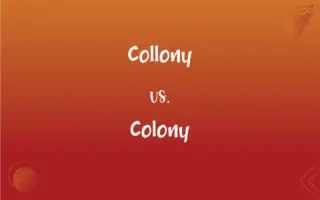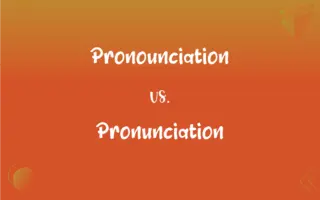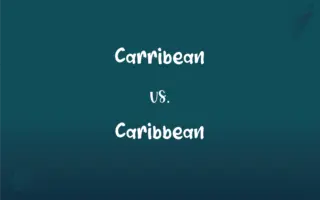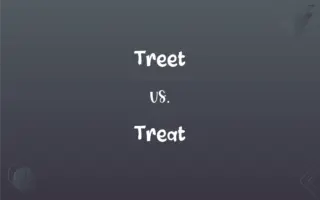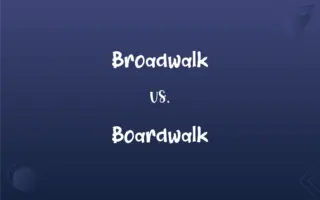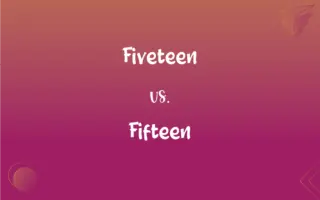Whent vs. Went: Mastering the Correct Spelling
Edited by Aimie Carlson || By Janet White || Updated on March 12, 2024
"Whent" is an incorrect spelling, while "Went" is the correct past tense of the verb "go."
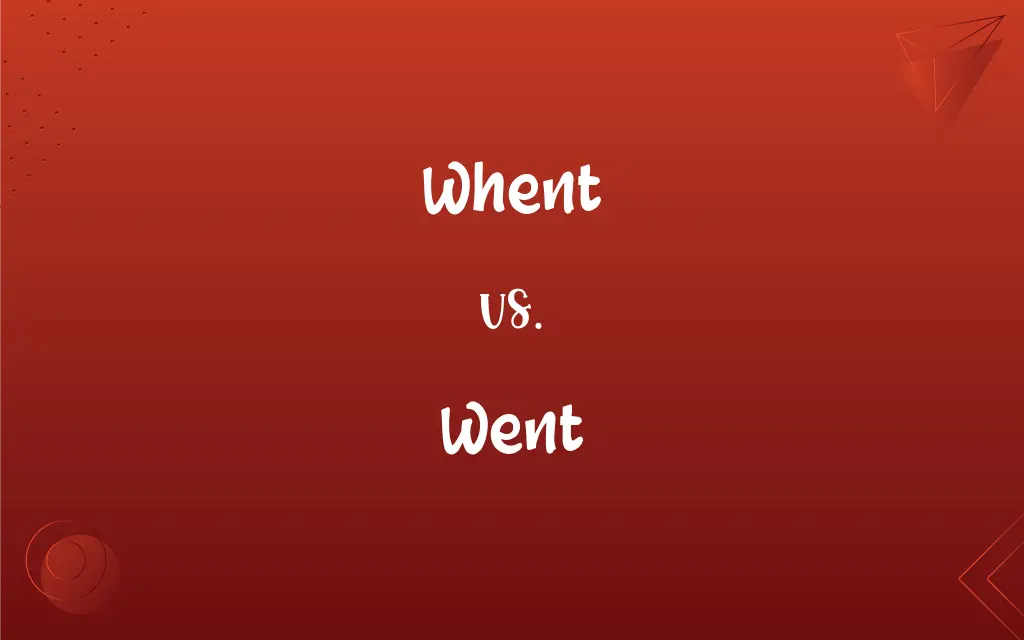
Which is correct: Whent or Went
How to spell Went?

Whent is Incorrect

Went is Correct
ADVERTISEMENT
Key Differences
Remember, "hen" has an "h" but "Went" doesn't.
Count the letters: "Went" has only four.
Think of "Went" as a trip that doesn't have the "h" stop.
"Go" becomes "Went" without any "wh" sound.
"When" is a question, but "Went" is a past action.
ADVERTISEMENT
Correct usage of Went
She whent to the store to buy some groceries.
She went to the store to buy some groceries.
The cat whent missing last night but returned in the morning.
The cat went missing last night but returned in the morning.
He whent through all the trouble to make sure the party was a success.
He went through all the trouble to make sure the party was a success.
They whent out for dinner at their favorite restaurant.
They went out for dinner at their favorite restaurant.
We whent over the presentation again to ensure everything was perfect.
We went over the presentation again to ensure everything was perfect.
Went Definitions
Past tense of the verb "go."
He went to the store.
Proceeded or advanced in any way.
The project went smoothly.
Moved from one place to another.
She went outside.
Became, especially as an outcome or result.
All the pies went uneaten.
Was in a certain condition.
The clock went dead.
Past tense of go1.
(nonstandard) go
(archaic) wend
(obsolete) A course; a way, a path; a journey.
Course; way; path; journey; direction.
But here my weary team, nigh overspent,Shall breathe itself awhile after so long a went.
He knew the diverse went of mortal ways.
Went Sentences
He went above and beyond to help his friend move.
She went to the library to study for her exams.
The movie went on for two hours, but it was very entertaining.
He went straight to bed after arriving home late.
She went through her closet to find the perfect outfit.
She went back to her hometown for the holidays.
They went for a walk in the park despite the cold weather.
After the game, we went to a pizza place to celebrate.
The children went wild at the sight of the amusement park.
They went to the concert together and had a great time.
He went out of his way to make her birthday special.
The temperature went up, signaling the start of summer.
The sun went down, and the stars began to appear.
They went silent when the teacher walked into the room.
The dog went missing, but luckily they found him in the neighbor's yard.
He went to the gym to work out every morning.
She went into detail about her trip to Europe.
The discussion went well, and they agreed on a plan.
The day went by quickly because they were having so much fun.
They went quiet as the movie started.
She went to the market to buy fresh vegetables.
They went through a lot together and remained best friends.
They went for a bike ride around the lake.
He went to the doctor for a routine check-up.
She went to see a play at the local theater.
Went Idioms & Phrases
Went the extra mile
Did more than what was required or expected.
He always goes the extra mile for his clients.
Went to town
Did something enthusiastically or excessively.
She went to town decorating the house for the holiday season.
Went through the roof
Increased or rose to a very high level.
After the announcement, their stock prices went through the roof.
Went off without a hitch
Occurred perfectly without any problems.
The wedding went off without a hitch, much to everyone's relief.
Went belly up
Failed completely.
The startup went belly up within a year of its launch.
Went hand in hand
Was closely related or worked well together.
Hard work and success go hand in hand.
Went out on a limb
Took a risk.
He went out on a limb to defend his friend.
Went under the radar
Remained unnoticed or undetected.
The artist went under the radar for years before being discovered.
Went down in history
Became remembered or recorded in history.
The event went down in history as a pivotal moment.
Went up in smoke
Ended fruitlessly; failed to materialize.
Their dreams of opening a restaurant went up in smoke.
Went for broke
Risked everything in an all-out effort.
They went for broke in the final minutes of the game.
Went overboard
Did too much; exceeded the limits.
I think we went overboard with the party planning.
Went off the deep end
Reacted extremely or irrationally.
He went off the deep end when he heard the news.
Went to bat for
Defended or supported someone.
My teacher went to bat for me when I was accused of something I didn't do.
Went against the grain
Acted contrary to what is generally accepted or expected.
She always went against the grain, choosing unconventional paths.
Went by the book
Followed the rules strictly.
The teacher always went by the book, ensuring fairness.
Went to pieces
Became very upset or fell apart emotionally.
She went to pieces after the breakup.
Went off half-cocked
Acted or spoke hastily or without full understanding.
He often went off half-cocked, which led to misunderstandings.
Went down the drain
Was wasted or lost.
All his efforts went down the drain when the project was canceled.
Went back to the drawing board
Started over after a failure or setback.
After the prototype failed, they went back to the drawing board.
FAQs
What is the pronunciation of Went?
Pronounced as "wehnt."
What is the verb form of Went?
"Went" is the past tense form of the verb "go."
What is the root word of Went?
The root verb is "go."
Which vowel is used before Went?
No vowel is typically used directly before "went."
Which preposition is used with Went?
Various prepositions can follow "went," such as "to," "into," "through," depending on context.
Why is it called Went?
"Went" is derived from Old English and became the past tense form of "go."
Is Went a noun or adjective?
"Went" is a verb.
Is Went an abstract noun?
No, "went" is a verb.
What is the singular form of Went?
"Went" itself, as it's a verb, doesn't have a singular or plural form like nouns do.
What is the plural form of Went?
Verbs don't have plural forms in the same way nouns do. "Went" remains "went" regardless of the subject.
Is the Went term a metaphor?
"Went" can be used in metaphoric expressions, e.g., "went through the roof."
Which conjunction is used with Went?
Conjunctions like "and" or "but" can be used, depending on context.
Is Went a vowel or consonant?
"Went" is a word made up of both vowels and consonants.
What is a stressed syllable in Went?
The entire word "went" is stressed since it's a single syllable.
What is the third form of Went?
"Gone."
Is Went an adverb?
No, "went" is not an adverb.
Is Went a countable noun?
"Went" is not a noun.
How do we divide Went into syllables?
"Went" is one syllable and isn't divided.
What part of speech is Went?
"Went" is a verb.
What is another term for Went?
"Traveled" or "moved."
Which article is used with Went?
Articles typically aren't used directly with "went" since it's a verb.
Is Went a negative or positive word?
Neutral; its connotation depends on context.
Is Went a collective noun?
No, "went" is a verb.
How many syllables are in Went?
One syllable.
Is the word Went is imperative?
No, "went" is not in the imperative form.
What is the opposite of Went?
"Stayed" or "remained."
What is the second form of Went?
"Went."
Which determiner is used with Went?
Determiners aren't typically used directly with "went" since it's a verb.
What is the first form of Went?
"Go."
How is Went used in a sentence?
"They went to the beach last summer."
About Author
Written by
Janet WhiteJanet White has been an esteemed writer and blogger for Difference Wiki. Holding a Master's degree in Science and Medical Journalism from the prestigious Boston University, she has consistently demonstrated her expertise and passion for her field. When she's not immersed in her work, Janet relishes her time exercising, delving into a good book, and cherishing moments with friends and family.
Edited by
Aimie CarlsonAimie Carlson, holding a master's degree in English literature, is a fervent English language enthusiast. She lends her writing talents to Difference Wiki, a prominent website that specializes in comparisons, offering readers insightful analyses that both captivate and inform.
